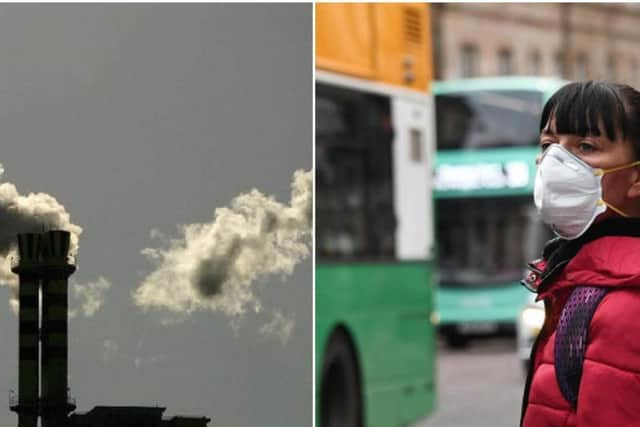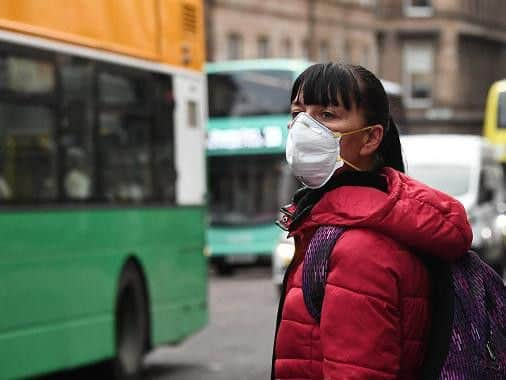Call for urgent action to stop deaths from ‘invisible killer’ air pollution
Toxic air pollution is responsible for thousands of early deaths in the UK each year.
The latest figures suggest around 64,000 people in the UK – including 2,500 in Scotland – die annually due to the impacts of breathing in dirty air, which can damage the lungs, heart and brain.
Advertisement
Hide AdAdvertisement
Hide AdRecent research suggests one in every 29 deaths in Scotland’s largest cities is linked to poor air quality.


This means around 15 million UK residents are likely to be exposed to dangerous levels of these contaminants, known as fine particulate matter or PM2.5.
The charity is calling for tighter legal limits on acceptable levels of pollution as well as Clean Air Zones, a public health awareness campaign and an increased focus on walking and cycling.


The BHF insists the nation’s health cannot wait any longer, and the forthcoming new environment bill should introduce WHO air pollution limits into UK law by 2030.
Jacob West, director of healthcare innovation at the BHF, said: “The uncomfortable truth is that UK heart and circulatory deaths attributed to air pollution could exceed 160,000 over the next decade unless we take radical steps now.”
He added: “We can’t see them but every day we all breathe in tiny toxic particles which damage our heart and circulatory health. They are an invisible killer.
“We must not become complacent and accept that dirty air is a part of normal life.
“Politicians have a unique opportunity to limit the damaging effects of pollution and improve the quality of our air, and they must seize it.”
Advertisement
Hide AdAdvertisement
Hide AdData from environmental campaign group Friends of the Earth Scotland shows EU legal limits for nitrogen dioxide were broken at six Scottish sites in 2019. The deadline for compliance was 1 January 2010.
l Hope Street, Glasgow
l Nicolson Street, Edinburgh
l Seagate, Dundee
l Academy Street, Inverness
l Lochee Road, Dundee
l St John’s Road, Edinburgh
Particulate matter limits were breached at four locations in 2018
l Queensferry Road, Edinburgh
l Salamander Street, Edinburgh
l Market Street, Aberdeen
l Wellington Road, Aberdeen
What is air pollution?
Air pollution is the presence of extremely small particles and gases in the air which can cause harm if you breathe them in.
The gases and small particles include:
l Gases such as nitrogen dioxide (NO2), ozone (O3), sulphur dioxide (SO2) and carbon monoxide (CO).
l Particulate matter (PM), particles such as soot and dust – these tiny toxic particles are of particular concern to our health.
Ultrafine particulate matter – PM0.1
l Around a thousandth of the width of a human hair. Fine particulate matter – PM2.5
l Anything with a diameter of less than 2.5 micrometres – that’s around a 30th of the width of a human hair
Coarse particulate matter – PM10
l Stuff with a diameter between 2.5 and 10 micrometres
Polluted air can come from a number of sources, including domestic wood and coal burning (which accounts for almost 40 per cent of background PM2.5 levels in the UK), road transport (12 per cent) and industrial processes (29 per cent).
